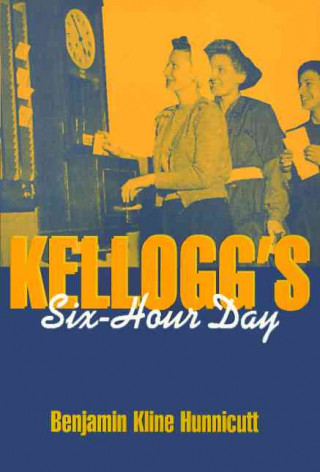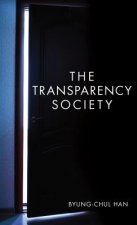
Kod: 05082130
Kellogg's Six-Hour Day
Autor Benjamin Kline Hunnicutt
On December 1, 1930, at the start of the Great Depression, W.K. Kellogg replaced the traditional three daily eight-hour shifts in his cereal plant with four six-hour shifts. By adding on a new shift he and his managers created job ... więcej
- Język:
 Angielski
Angielski - Oprawa: Miękka
- Liczba stron: 261
Wydawca: Temple University Press,U.S., 1996
- Więcej informacji o książce

44.09 €
Zwykle: 48.98 €
Oszczędzasz 4.89 €
Zobacz książki o podobnej tematyce
-

Lautlos
15.59 € -14 % -

Languages and Compilers for Parallel Computing
61.30 € -

PCR Strategies
197.22 € -

Mars, A Cosmic Stepping Stone
24.86 € -18 % -

Okkultismus
9.96 € -4 % -

The Big Bang and Georges Lemaître
240 € -

American Historical Romance
66.94 €
Podaruj tę książkę jeszcze dziś
- Zamów książkę i wybierz "Wyślij jako prezent".
- Natychmiast wyślemy Ci bon podarunkowy, który możesz przekazać adresatowi prezentu.
- Książka zostanie wysłana do adresata, a Ty o nic nie musisz się martwić.
Powiadomienie o dostępności
Wpisz swój adres e-mail, aby otrzymać od nas powiadomienie,
gdy książka będzie dostępna. Proste, prawda?
Więcej informacji o Kellogg's Six-Hour Day
Za ten zakup dostaniesz 111 punkty
 Opis
Opis
On December 1, 1930, at the start of the Great Depression, W.K. Kellogg replaced the traditional three daily eight-hour shifts in his cereal plant with four six-hour shifts. By adding on a new shift he and his managers created jobs for employees that the company had laid off and for other unemployed persons in Battle Creek, Michigan. Kellogg's six-hour day was the pinnacle of a hundred-year process that cut working time virtually in half. Kellogg Management, propelled by a vision of Liberation Capitalism, insisted that six hours would revolutionize society by shifting the balance of time from work to leisure - from economic concerns to the challenge of freedom. Kellogg's employees, like centuries of workers, believed that work was a means to an end. An overwhelming number of employees were willing to "share their work" and found the extra time an opportunity to invest in the family, community, church, and individual freedom.When World War II ended, Kellogg's managers abandoned the six-hour shift and began with the rest of the nation to define progress as more work for more people. Losing sight of the original dream of more time to live outside necessity, management argued that work should remain the center of life, providing identity, meaning, and purpose to an otherwise meaningless existence. Hunnicutt documents the struggle of those workers, mostly women, who resisted management and the new beliefs about work's centrality. They fought to keep their six-hour shifts until 1985, and in the process preserved the century-old vision of "progressive shortening of the hours of labor."Their story is a monument to workers' struggle for control over their lives and for substantial freedom beyond necessity. It serves as a reminder of a remarkable vision of progress, offering hope and guidance to the last decade of this century when layoffs, downsizing, mandatory overtime, and a "jobless future" plague the nation. Benjamin Kline Hunnicutt is Professor of Leisure Studies at the University of Iowa. He is also the author of "Work Without End: Abandoning Shorter Hours for the Right to Work" (Temple).
 Szczegóły książki
Szczegóły książki
Kategoria Książki po angielsku Society & social sciences Sociology & anthropology Sociology
44.09 €
- Pełny tytuł: Kellogg's Six-Hour Day
- Autor: Benjamin Kline Hunnicutt
- Język:
 Angielski
Angielski - Oprawa: Miękka
- Liczba stron: 261
- EAN: 9781566394482
- ID: 05082130
- Wydawca: Temple University Press,U.S.
- Waga: 378 g
- Wymiary: 152 × 225 × 15 mm
- Data wydania: 29. October 1996
Ulubione w innej kategorii
-

Regretting Motherhood
15.80 € -7 % -

Small Is Beautiful
11.06 € -22 % -

Death and the Afterlife
18.01 € -24 % -

Outsiders
17 € -15 % -

Death and the Afterlife
31.90 € -2 % -

Fair Play Deck
17.61 € -19 % -

Eroticism
11.27 € -28 % -

Sex at Dawn
13.58 € -18 % -

Surrendered Wife
10.36 € -27 % -

Cartoon Guide to Statistics
19.52 € -21 % -

Bushido the Soul of Japan
11.47 € -

Gifts of Imperfection: 10th Anniversary Edition
28.68 € -

Intercourse
14.29 € -27 % -

True Believer
12.78 € -29 % -

On Death and Dying
13.98 € -30 % -

Political Tribes
11.27 € -21 % -

Wounded Woman
18.62 € -10 % -

Intimate Communion
12.78 € -25 % -

Tragedy and Hope
71.07 € -

Critique of Everyday Life
36.64 € -19 % -

Past Mortems
9.25 € -28 % -

Building and Dwelling
13.48 € -29 % -

Surrendered Single
13.28 € -28 % -

Expulsion of the Other - Society, Perception and Communication Today
17 € -

Together
11.37 € -22 % -

Modern Psychometrics with R
72.68 € -12 % -

Cultural Contradictions Of Capitalism
16.60 € -21 % -

Unthinking Social Science
28.58 € -15 % -

History and Social Theory 2e
23.45 € -7 % -

Transparency Society
14.08 € -6 % -

Introductory Statistics
38.65 € -

Single Mothers by Choice
13.78 € -19 % -

Practice of Business and Social Research
38.15 € -

Age of Beloveds
35.93 € -9 % -

Revolt Of The Cochroach People
14.29 € -20 % -

Work of the Dead
25.66 € -16 % -

Why People Die by Suicide
25.76 € -16 % -

Healing Children's Grief
66.13 € -

Tragedy and Hope
44.49 € -

Braving the Wilderness
8.65 € -20 % -

Wanderlust
17 € -19 % -

Theory of the Leisure Class
11.27 € -28 % -

Cruel Optimism
27.37 € -6 % -

Social Intelligence
12.88 € -22 % -

World of Sex
6.33 € -27 % -

Book of Tea
9.25 € -28 % -

Why Love Hurts - A Sociological Explanation
17.61 € -

Becoming Partners
14.99 € -

Birth Of A Mother
22.04 €
Osobní odběr Bratislava a 2642 dalších
Copyright ©2008-24 najlacnejsie-knihy.sk Wszelkie prawa zastrzeżonePrywatnieCookies



 Vrácení do měsíce
Vrácení do měsíce Zdarma od 49.99 €
Zdarma od 49.99 € 02/210 210 99 (8-15.30h)
02/210 210 99 (8-15.30h)